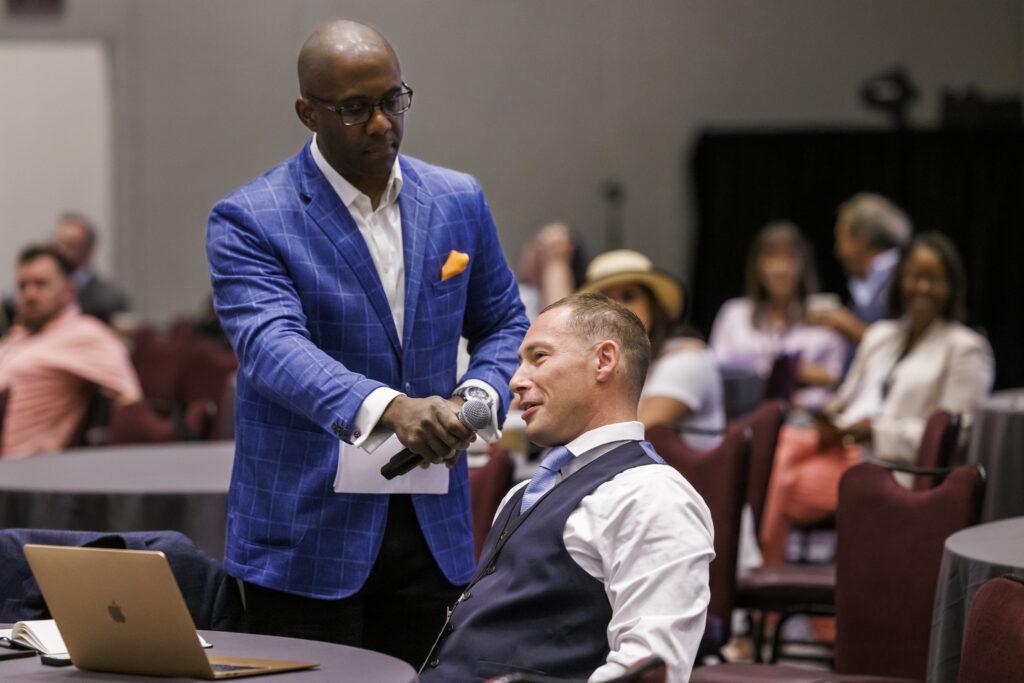In a recent episode of The Rundown with Ramon, Ramon Ray sat down with Paul Bramson to delve into the significance of first impressions. Paul Bramson, a keynote speaker and master trainer in sales, leadership, and communication, shared his expertise on how first impressions can shape interactions and relationships, both professionally and personally. Let’s explore the key takeaways from their engaging conversation.
You can watch the entire episode on YouTube or listen to it on the podcast.
The Importance of First Impressions
First impressions are crucial because they set the tone for future interactions. Ramon emphasized the necessity of creating a positive first impression, even going as far as cleaning his background before speaking with Paul. It only shows the weight people place on first impressions. Paul agreed, noting that a strong first impression can motivate others to want to engage with you, rather than pushing them away.
Understanding the Audience
Paul shared that understanding your audience is key to making a good first impression. He explained that people communicate from their own underlying needs, which often don’t resonate with others. One can tailor their communication to better connect with the audience by identifying these needs.
The Four Underlying Needs
Paul introduced the concept of underlying needs, which he categorized into four types:
- The need to be liked refers to an individual’s desire for acceptance and approval from others.
- The need to be safe typically involves the desire for security and certainty in one’s social and physical environment. It can manifest in avoiding conflict or seeking assurance that one’s social standing or physical well-being is secure.
- The need to be right revolves around an individual’s drive to feel validated in their beliefs, decisions, and perspectives. It is characterized by a pursuit of accuracy, correctness, and the affirmation of one’s intellectual or moral stance.
- The need to look good focuses on maintaining a positive image or reputation. It can be related to one’s appearance, social status, or any other attribute that might enhance how they are perceived by others.
For instance, Ramon admitted that his primary need is to be liked. This self-awareness allows him to understand why certain interactions affect him more deeply. Paul emphasized that recognizing these needs in others enables more effective and empathetic communication.
To illustrate, Paul shared a scenario where he assessed Ramon’s need to be liked. By using words and phrases that resonate with this need, Paul demonstrated how to make others feel valued and understood. This technique is especially useful in professional settings, where understanding and meeting the underlying needs of colleagues and clients can lead to more productive and positive interactions.
The Role of Emotional Intelligence in Adapting Communication Styles
Paul highlighted the importance of emotional intelligence in reading the room and adapting communication styles. He explained that successful communication involves more than just conveying information; it requires an understanding of how to engage and motivate people. This is particularly relevant in leadership and sales, where the ability to connect with others can significantly impact outcomes.
Reading the Room
Using an example from the movie “The Equalizer,” Paul described how paying attention to subtle cues in a room can enhance one’s ability to make a positive first impression. By being mindful of body language, tone of voice, and other non-verbal signals, individuals can adjust their approach to better suit the situation and audience.
Overcoming Rustiness as Professionals
Paul acknowledged that even experienced professionals can get rusty. He noted that the fast-paced nature of business today requires continuous skill refinement. To stay sharp, Paul recommends engaging in regular training and seeking feedback from peers and mentors. This proactive approach ensures that one’s skills remain relevant and effective.
Bridging Generational Gaps
Addressing generational differences, Paul pointed out that younger professionals often seek development opportunities more actively than their older counterparts. However, he stressed that all generations can benefit from improving their emotional intelligence and communication skills. By focusing on relevance and adaptability, professionals of all ages can enhance their first impressions and overall effectiveness.
Key Takeaways
First impressions are a powerful tool in both personal and professional interactions. Paul Bramson’s insights highlight the importance of understanding and meeting the underlying needs of others, adapting communication styles, and continuously refining one’s skills.
As we navigate our daily interactions, it’s essential to remember that first impressions are just the beginning. By investing time and effort into understanding and connecting with others, we can build a foundation of trust and respect that benefits all parties involved. Whether in business or personal life, the power of a well-made first impression cannot be underestimated.
By applying these principles, individuals can create positive and lasting first impressions, fostering stronger relationships and achieving greater success.







